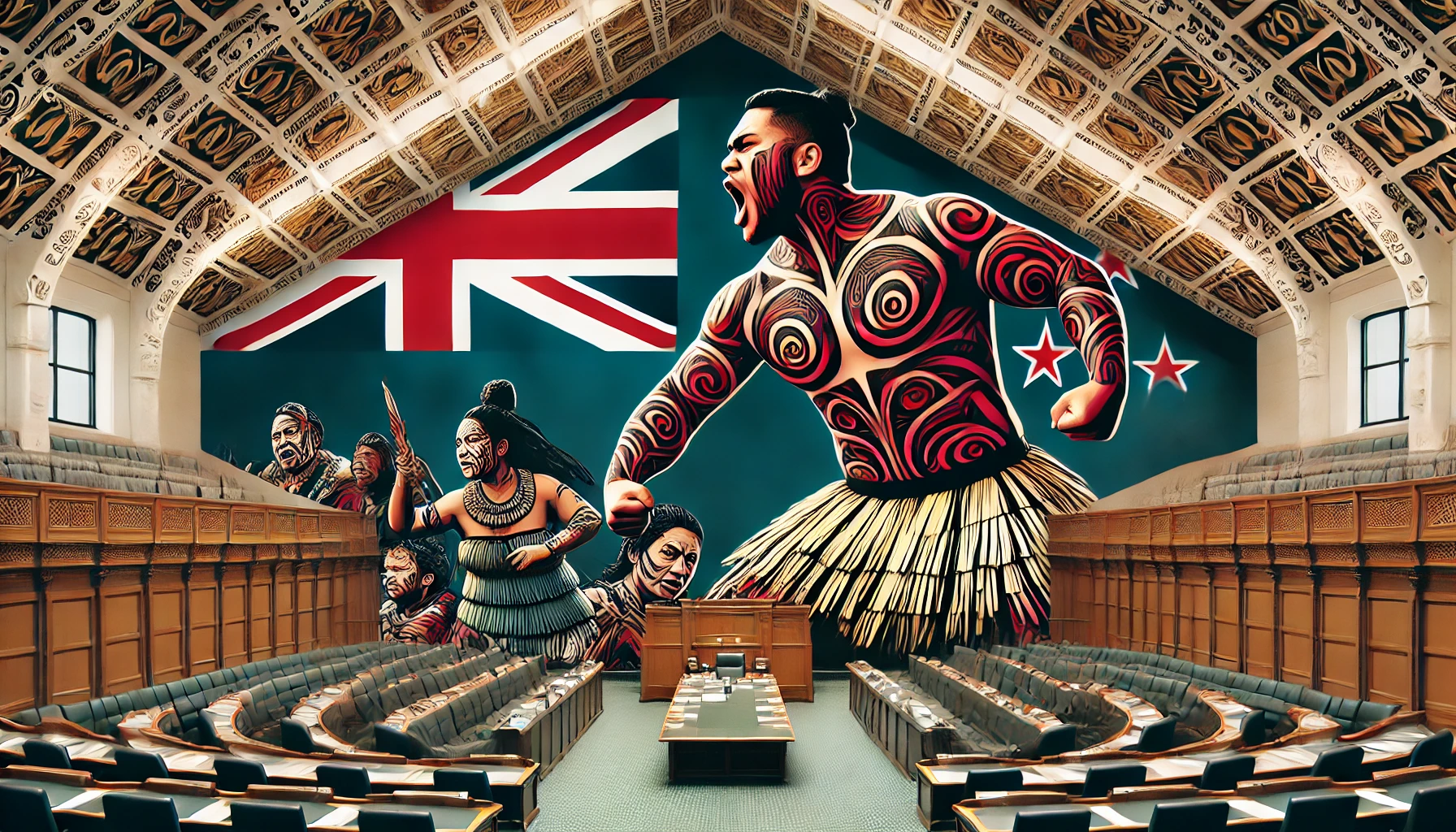The Power of Protest in New Zealand: How Maori Lawmakers Use the Haka to Challenge Legislative Changes
The Maori Haka protest of 2024 has ignited global interest, intertwining the threads of cultural heritage, political resistance, and the fight for indigenous rights in New Zealand. This bold display by Maori lawmakers, rooted in the tradition of the Haka, highlights the enduring significance of this ceremonial dance as a medium for protest and cultural identity.
What is the Maori Haka Protest?
The Maori Haka protest arose in response to a controversial bill proposing changes to the Treaty of Waitangi—a foundational document shaping the relationship between New Zealand’s government and its indigenous Maori population. Lawmakers opposed to the bill performed the Haka, a traditional dance rich in history and symbolism, to express their dissent. The protest served as both a political statement and a cultural reminder of the resilience of Maori traditions.
Haka: A Symbol of Cultural and Political Resistance
Understanding the Cultural Significance of the Haka
The Haka, traditionally a Maori war dance, has evolved into a broader symbol of unity, pride, and resistance. Performed on occasions ranging from welcoming guests to marking significant protests, the dance embodies Maori identity.
The use of the Haka cultural significance during the protest highlighted its power as a tool for activism. Its rhythmic chants and bold movements resonated with both supporters and opponents, reinforcing the protesters’ connection to their roots.
From Cultural Heritage to Parliamentary Protest
During the 2024 protest, Maori lawmakers elevated the Haka from a cultural practice to a political statement. By incorporating it into their fight against the Principles of the Treaty Bill, they underscored the dance’s role in defending indigenous rights. This act of defiance brought the global spotlight to the issue, amplifying the voices of those advocating for fairness and equality.
Treaty of Waitangi Controversy: A Historical Perspective
What is the Treaty of Waitangi?
Signed in 1840, the Treaty of Waitangi is considered New Zealand’s founding document. It established a partnership between Maori chiefs and the British Crown. However, disputes over interpretation have persisted for over a century, with the Maori often advocating for the treaty’s principles to be honored in full.
The 2024 Controversy
The Treaty of Waitangi controversy centers around a bill aiming to reinterpret the treaty’s principles. Critics argue that the bill undermines the rights of the Maori, jeopardizing their political representation and cultural heritage. This legislation sparked the Maori political movements 2024, with protests erupting across the country.
Protest Highlights Inequality
The Maori lawmakers’ Haka protest was not an isolated incident. It followed a series of demonstrations nationwide, emphasizing the growing divide in New Zealand’s approach to indigenous representation.
Indigenous Rights in New Zealand: A Modern Struggle
The Current Landscape of Maori Representation
Today, Maori representation in New Zealand’s political and social systems remains a contentious issue. While strides have been made to include indigenous voices, systemic challenges persist. Advocates for New Zealand indigenous rights argue that legislation like the proposed Treaty Bill threatens to erode hard-fought gains.
Why the Haka Protest Matters
The protest highlighted broader issues of indigenous rights and the importance of preserving Maori cultural practices in modern governance. It also underscored the significance of involving Maori perspectives in policy-making processes.
Lessons from the Haka Protest
A Template for Activism
The Maori lawmakers protest bill demonstrated the potential of cultural heritage as a tool for activism. The Haka served as a unifying force, rallying not only the Maori community but also international support for their cause.
Global Implications
This event offers lessons for other indigenous communities worldwide. By leveraging cultural practices, marginalized groups can amplify their voices and influence change.
How to Support Indigenous Rights
If the Haka protest has inspired you, here are ways to support indigenous rights:
- Educate Yourself: Learn about the history and significance of the Treaty of Waitangi.
- Engage in Conversations: Discuss indigenous rights issues in your community.
- Support Maori Organizations: Contribute to initiatives advocating for equality and representation.
The Maori Haka protest is more than a moment in history; it is a reminder of the enduring power of cultural heritage in shaping modern narratives. For further insights into cultural studies, explore resources at Regent Studies, a platform offering comprehensive perspectives on global cultures and histories.
For a deeper understanding of the Treaty of Waitangi, visit the New Zealand History site.


